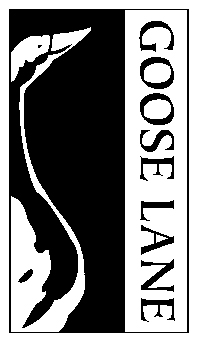Q&A with Jon Tattrie, author of Peace by Chocolate

When did you first hear about Peace by Chocolate? How much of their story were you aware of when you first met with the family?
I was in the CBC newsroom around the time my colleague, Carolyn Ray, first interviewed Tareq, and I followed their story from the start. In fall 2016, Tareq and his father Isam first met Justin Trudeau when the prime minister was visiting Nova Scotia. I spotted the meeting on their Facebook page and called Tareq for an interview — that was the first time I spoke to him. By the time I approached him to write the book, I knew a lot about their outer experience — but little about their inner experience. I also knew a lot about Tareq and Isam’s journey, but very little about the women’s journeys.
How much time did you spend with Tareq, his family, and the Antigonish community to research the book?
A lot! I probably did ten or so big, sit down interviews with the family at their home in Antigonish, and I met with the founders of SAFE (the group that brought them to Canada) twice. I also joined the family and community at the airport twice to welcome new families.
I did about a dozen phone interviews with community members about particular parts of the story and sent plenty of random emails asking odd things like, What kind of car do you drive? What pants were you wearing that day? What did the chocolate feel like the first time you ate it? Everyone was very tolerant of me and answered in great detail.
Tell us about a unique experience you had while researching and writing Peace by Chocolate.
I got to tour a chocolate factory! This has been a secret life-long dream, probably since I was a kid and read Charlie and the Chocolate Factory and Curious George Goes to a Chocolate Factory. I have a cheap palette for most things, but a refined appreciation of chocolate. Tareq took me and my seven-year-old son Xavier and four-year-old daughter Roslyn through the factory, showing us how everything worked, and giving us the odd sample.
How has working on this book differed in comparison to your other works?
I’ve written about a lot of controversial topics — Halifax founder Edward Cornwallis and Africville protester Eddie Carvery, for example — and am used to pushing through thick woods. But with Peace by Chocolate, it seems a universally loved story. Who wants to object to a community welcoming strangers in trouble, only to have those strangers rapidly become pillars of the community and major employers?
Also, because everything had happened so recently, I was able to get a lot more details and colour, because everyone’s memory was so fresh. Plus, much of it was documented on Facebook, so I could really bring it to life.
While the book is in large part a celebration of community and welcoming, it also looks at the darker realities of civil war and being uprooted from the place you call home. How do you approach telling both sides of their journey as a storyteller?
In some ways as a journalist, and given my previous books, I found it easier to write about the hard stuff. Kind of like that Tolstoy opening about all happy families being happy in the same way, while each unhappy family is unhappy in its own way. It was at first a challenge to write about the happy parts of the story in a compelling way.
We all agreed from our first meeting that 30 per cent of the book would be in Syria, and 70 per cent in Canada. In Syria, I felt I had to write enough about the brutality of the war so that people in Canada would better understand how bad things had to get before people started thinking about leaving. For nearly every refugee I spoke to, leaving was the last option. So I wanted to show the beauty of Syria, crossed with the ugliness of war.
Did you sample the chocolate as part of your research?
So. Much. Chocolate.
What is a question you wish had been asked?
You know, I managed to get it in on my very last interview. It was January this year, and I called Isam (and Tareq) from a hotel in Toronto, where I was in residency for my MFA. Looking out my window over the city lights, I finally asked Isam a question I’d been holding back for years: Why chocolate?
His lovely, lyrical answer gave me the secret ingredient to a rapid rewriting of the entire book, and one of the central metaphors of the book. But you’ll have to read it to get his answer.
